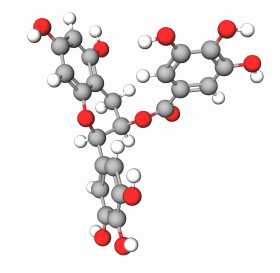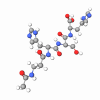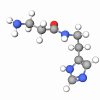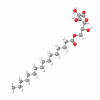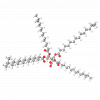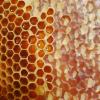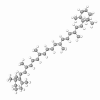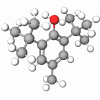Green tea has been well known in Asian countries for its many healthful benefits. Primarily based on folklore, a cup of green tea, enjoyed after meals, is traditionally believed to prevent many diseases. Later, scientific studies have demonstrated that the catechin fraction of green tea, which mostly (50%) consists of EGCG (Epigallocatechin Gallate), plays a pivotal role in the preservation of health, exposing extraordinary antioxidant, anti-inflammatory, and anti-microbial activities.
Pure EGCG is a white crystalline powder, a natural ingredient that is easy to add to topical skin and hair care products. Epigallocatechin gallate is a powerful antioxidant, effectively scavenging free radicals. Free radicals are highly reactive species created in the cell's mitochondria during normal metabolic processes or from the environment (e.g., UV exposure, pollution, cigarette smoke, etc.). Free radicals can quickly react with cell membranes or DNA molecules and interfere with normal functions. Those aggressive species play an influential role in skin maturation and condition. Reducing free radical damage and increasing antioxidant effects in skin EGCG has a vast potential to preserve the natural beauty and entire well-being, reducing cancer risk.
Scientific studies have recently demonstrated that the catechin fraction of green tea Epigallocatechin gallate plays an essential role in preserving collagen and balancing microbiota, maintaining skin's natural firmness, elasticity and health. It effectively inhibits and decreases the production of collagen-destructing enzymes (like MMP-1; matrix metalloproteinase-1), exposing firmer and supple skin. Another research suggests that EGCG inhibits bacterial activity and growth, precluding the adherence of bacteria, balancing skin microbiota, and preventing acne.
Epigallocatechin gallate may help reduce body fat and enhance adipocytes metabolism. In addition, it increases fat oxidation and promotes energy expenditure, showing a good potential for use in anti-cellulite formulations.
